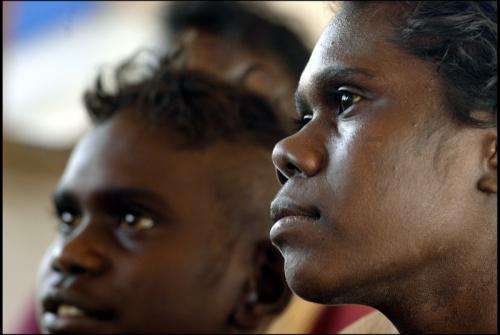Project tackles communication disorders in rural settings

Aboriginal Australians are more than twice as likely to suffer a stroke or traumatic brain injury than non-Aboriginal Australians, leading to acquired communications disorders (ACD) – and Edith Cowan University researchers are working to improve their rehabilitation prospects.
The 'Missing Voices' project aims to examine the impact and extent of ACD across WA Aboriginal communities in Kalgoorlie, Albany, Perth, and Geraldton with sites to be confirmed in the Kimberley and Pilbara.
ECU Foundation Chair for Speech Pathology and lead researcher Professor Beth Armstrong says little is known about Aboriginal Australians' experiences of communication difficulties after brain injury, relating to the impact on everyday life and social relationships.
"But we do know there is poor engagement between services providing communication rehabilitation and Aboriginal people," she says.
"Our study is exploring the reasons why this might be so and ways the situation could be improved.
"We're also looking to find how Aboriginal families currently manage a family member with ACD after stroke or traumatic brain injury and what positive strategies are used outside the mainstream rehabilitation services."
The research team is hoping to gain these insights by talking with Aboriginal people who have suffered from either condition, and their families, as well as a variety of health professionals.
File audits are also being conducted across the state and hospital data is being analysed to gauge the extent of communication disorders in the Aboriginal communities.
Prof Armstrong says Aboriginal Australians suffer from a high number of risk factors relating to stroke including diabetes, cardiovascular disease and high blood pressure.
"Traumatic brain injuries can occur after events such as motor vehicle accidents, falls, sporting injuries and assaults which can be influenced by living in rural and remote communities [where road conditions and safety are poorer], high levels of drug and alcohol intake and domestic violence," she says.
"We've found Aboriginal people are very unlikely to undertake rehabilitation services after leaving hospital.
"Many with brain injury appear to be absorbed back into their communities regardless of degree of deficit."
A culturally sensitive communication tool has been developed in consultation with Aboriginal health workers, language workers and speech pathologists to help with the research.
But rather than being based on testing particular skills, it engages the person with ACD in a two-way conversation.
"The assessor then rates the person's communication skills on a variety of scales," Prof Armstrong says.
"Pictures are sometimes used as prompts, using Aboriginal people and familiar situations, while the tool also involves asking the person and their family about any impact the communication disorder has on everyday activities and relationships."
More information: For more information about the study "Missing voices: communication difficulties after stroke and traumatic brain injury in Indigenous Australians," see: www.healthinfonet.ecu.edu.au/k … ms-projects?pid=1696













